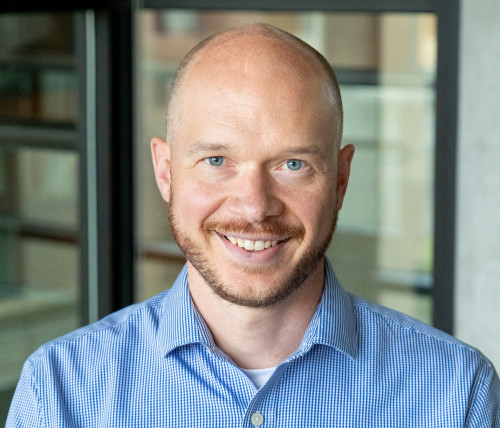New Faculty Profile: Looking at how exercise changes mood
Jacob Meyer: Assistant Professor, Department of Kinesiology, School of Education
Hometown: Madison, Wisconsin
Educational/professional background: I received my BS in Exercise Science with a concentration in Neuroscience from St. Olaf College in 2008 before receiving my MS and PhD from UW–Madison in Kinesiology (specialization in Exercise Psychology) in 2011 and 2015, respectively. I then completed a postdoctoral research fellowship in the Department of Family Medicine and Community Health at UW–Madison. After that I was hired as an assistant professor at Iowa State University in 2017 and promoted to associate professor in 2023.

Jacob Meyer
What is your field of research, and how did you get into it? I am interested in developing and testing behavioral interventions to treat mental health conditions, particularly depression. After my own experiences linking behavior to mental health, I became very interested in identifying the best ways to integrate movement into mental health treatment as well as in determining how exercise or other physical activity actually changes mood at the molecular and mechanistic levels.
What attracted you to UW–Madison? For me, UW–Madison is an institution that conducts cutting-edge scientific research with a well-supported academic medical center and a faculty stocked with wide-ranging expertise and great potential collaborations. And, it does not hurt that it’s a bit of a homecoming, too!
What was your first visit to campus like? While I have been gone for seven years, campus has continued to grow in incredible ways. My research program will include exercise interventions and the Bakke and Nick are incredible resources for students and the community alike. There’s also nothing quite like the view from the top of Bascom past the Terrace to the Capitol. I am excited to help UW continue to cement itself as a leader in research that promotes human flourishing while having major immediate impacts within our local community.
Do you feel your work relates in any way to the Wisconsin Idea? If so, please describe how. My teaching and research can translate quickly into people’s lives outside of the classroom. For example, by conducting large-scale intervention research, we are actively working with hundreds of people to test new programs to improve their health and well-being. This not only takes our ideas to the community members in the programs, but it also leads to internships and other student opportunities where students can work directly with our community to put their learning into practice.
What’s something interesting about your area of expertise you can share that will make us sound smarter at parties? One debunked myth in exercise psychology is that it turns out that if someone exercises while their endorphin receptors are blocked, they still feel better afterwards! The search for the “feel-good” biomarkers of exercise continues.
Hobbies/other interests: I enjoy exercising, spending time with family, and being outdoors. Local food and beverages are also highlights of the day, be they from coffee shops, the Mediterranean Café, breweries, etc.
